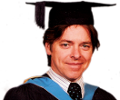|
FIRST CERTIFICATE READING AND USE OF ENGLISH PART 4 KEY WORD TRANSFORMATIONS |
 |
|
 |
|
INFORMATION, TECHNIQUE, EXERCISES & VIDEO LESSONS |
|
|
|
||||||||||||||||||||||||||||||||||||||||||||||||||||||||||||||||||||||||||||||||||||||||||||||||||||||||||||||||||||||||||||||||||||||||||||||||||||||||||||||||||||||||||
|
MADE IN VALENCIA BY BOB WILSON © ROBERT CLIFFORD MCNAIR WILSON 1999 - 2017 autoenglish.org All rights reserved |
|